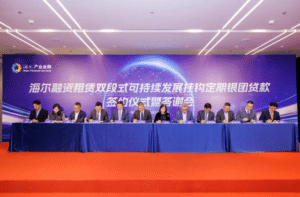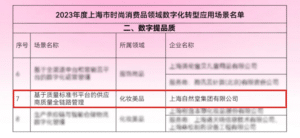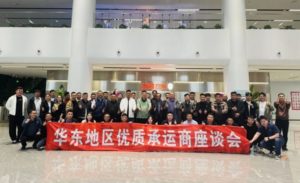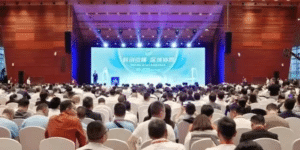Biden’s China restriction order: Chinese government angrily reprimands industry players for calm
[ad_1]
The Biden administration’s investment ban on China’s high-tech sector has aroused strong protests from Chinese officials and general opposition from Chinese scholars. However, people who are engaged in consulting, investment, entrepreneurship and other related work in China said in interviews that they were not surprised by the introduction of the restriction order. They believe that the “cold” relationship between China and the United States in the field of venture capital began as early as during the epidemic or even earlier, and they believe that China will also introduce relevant countermeasures, making the cooperation between the two countries in the field of venture capital more difficult. Official Response: Seriously Concerned about the Investment Restriction on China signed by Biden, Chinese officials quickly responded Protect your own interests. The spokesperson of the Ministry of Commerce of China said that the United States restricts foreign investment of domestic enterprises and engages in “decoupling and breaking chains” in the investment field under the guise of “reducing risks”. This seriously deviates from the principles of market economy and fair competition that the United States has always advocated and affects the normal operation of enterprises China is seriously concerned about this decision, which undermines the international economic and trade order and seriously disrupts the security of the global industrial and supply chains, and reserves the right to take measures. China’s Ministry of Foreign Affairs also made an official comment on this, saying that “the U.S. move seriously violates the principles of market economy and fair competition, seriously disrupts the international economic and trade order, seriously disrupts the stability of the global industrial chain and supply chain, and seriously damages the business of China, the United States and the world.” The essence is to engage in anti-globalization and de-sinicization”, and urged the US to “immediately withdraw its wrong decision, cancel investment restrictions on China, and create a good environment for Sino-US economic and trade cooperation”. Many Chinese media pointed out that although the “country of concern” is used throughout the executive order to refer to China, the “country of concern” listed in the annex of the executive order is only China, including the mainland, Hong Kong and Macau. Sohu’s report even emphasized that “this kind of exaggeration of the so-called China threat is not uncommon in Washington.” However, the signing of the restriction order did not attract a lot of attention on the Chinese Internet. On Weibo, entries related to the restriction order, such as “The United States prohibits investment in sensitive technologies in China”, “Biden’s investment restrictions in China worry US companies”, etc. None of them sparked widespread discussion among netizens, and there were only official media reports under the entry. Scholars’ Comments: Small courtyards with high walls, China counteracts Economic and international relations scholars who write for Chinese state media generally express their opposition to this restriction order. Chen Fengying, a researcher at the China Institute of Contemporary International Relations, mentioned in an interview with Fenghuang.com that the executive order, together with the previous US listing of many Chinese companies on various sanctions lists, is building a “small courtyard and high wall”. At present, the “small courtyard and high wall” has actually been established, and American companies in related high-tech fields are struggling to invest in China. The strategy of “small courtyards and high walls” was proposed by an American think tank in 2018. “Small courtyards” refer to core technologies, and “high walls” represent the delineation of appropriate strategic boundaries. “Small courtyards and high walls” mean that the U.S. government needs to delineate appropriate strategic borders, blockade and control specific technologies and research fields directly related to national security. Many experts and scholars who have written articles in Chinese state media, such as Xiang Ligang, have criticized this strategy many times in the past few years, and believe that this kind of behavior by the United States cannot be responded to by other countries, and will make American companies lose the Chinese market. An expert who has been engaged in the financial and consulting industry in China for decades told reporters anonymously that the restriction order does not seem to be very strict at present. He himself and other practitioners have heard since last year that the US government will issue a similar ban, and the ban will not take effect until next year. Even if the U.S. capital invested in related industries has not yet begun to withdraw, the remaining months of this year are enough for them to formulate a complete withdrawal timetable and properly handle their investment business in China and their shares in related Chinese companies. Although the ban does not cover many fields, the expert believes that in the context of the tense Sino-US relations, whether it is Chinese companies accepting American capital or American companies accepting Chinese capital, even in sensitive areas, they will become more cautious. He explained: “Because a company’s products are originally for civilian use, they will one day be used for military use. Investors may not know it very well. Moreover, the scope of this restriction order may expand in the future.” He believes that although China cannot Force foreign capital to invest in China, but countermeasures will also be taken. Consulting firms in China have been targeted by the Chinese government in recent months. In May of this year, under the Anti-Espionage Law, the Chinese government sent agents to raid several offices in mainland China of consulting industry leader Capvision, arguing that the company had not “seriously fulfilled its anti-espionage security obligations.” “. Response from the business world: Prepared, no surprise Zhang Yu (pseudonym), an entrepreneur in the field of artificial intelligence in China, said that although his field of work was directly related to the ban, there were not many discussions among his peers about the news . He believes that it is because relevant rumors have been circulating for a long time before the introduction of the restriction order, and the general trend of American venture capital funds investing in Chinese companies has been “cold” for a long time. “It’s been a long time since I heard of any peers raising money from US funds,” he said. Several of his friends who work in foreign investment funds have also kept a low profile on social platforms such as Moments for the past year. Statistics from Rhodium Consulting show that U.S. direct investment in China fell to a 20-year low last year at $8.2 billion; U.S. venture capital investment in China fell to $1.3 billion, the lowest in 10 years. The value of deals halved last year to about $69 billion, the lowest level in six years, according to research firm PitchBook. Before the epidemic, the most well-known American venture capital fund in the Chinese venture capital circle was Sequoia Capital. When several well-known Chinese companies went public, Sequoia held a large number of shares, and entrepreneurs were also proud of being invested by Sequoia. In June of this year, Sequoia Capital issued a statement stating that it will split its global business into three entities, and the Chinese and American businesses will be separated. The Chinese business will be named Hongshan. This behavior made Zhang Yu realize that “the world was merged before, but now the world is divided.” However, entrepreneurs engaged in artificial intelligence, semiconductors, chips and other fields in China do not lack financing channels. Zhang Yu said that these fields are all supported by the state, and they can get policy preferences and subsidies from local governments. If the company is willing to land in a certain area and can meet the KPI of the local government for attracting investment, the local government will very much welcome it. These companies can also obtain financing from the government’s LP (Limited Partner, limited partner) RMB fund. In the past one or two years, it has not been difficult to obtain government financing. In recent years, due to the unsatisfactory income from domestic real estate investment and wealth management investment, many RMB funds led by local governments have begun to invest in equity to support the development of key local industries. The Chinese government also issued sanctions against the United States and other Western countries in the semiconductor and other fields. For example, China’s Ministry of Commerce has imposed export controls on high-performance drones and related items for the purpose of “maintaining national security and interests”, and previously announced that it will impose restrictions on some drones that can be used in chip manufacturing. Export restrictions are imposed on metals. Zhang Yu, who is in a related industry, can clearly feel the division of the world. He believes that the Sino-US trade war and the globalization trend before the epidemic have brought the venture capital industry no more. Mr. F, who operates an investment fund in China, believes that the impact of the restriction order will not be particularly prominent. He said that the investment of overseas capital in China is indeed declining, but he believes that the reasons behind this are not only the United States and other countries taking China as a strategic opponent to guard against, but also other countries in the world that have been affected by the epidemic and economic downturn. Need to focus on the factors that develop the domestic economy first. In addition, China’s current economic development is slowing down, and capital is profit-seeking. Therefore, it is normal for foreign funds to switch to invest in companies in other countries when China’s development potential is declining and China’s future profit expectations are not high. . He believes that the industry has expected and predicted this situation, so don’t worry. He told reporters: “In the field of economy and investment, the most fearful thing is unpredictability. This is predictable, and neither the enterprise nor the national level needs to worry.” At the same time, he also believes that China’s leading edge in manufacturing is still relatively obvious, Therefore, international cooperation in this industry will still be frequent in the future. The United States can only restrict China in a few high-tech fields such as semiconductors, and in these fields, the Chinese government can use its strong macro-control capabilities to deal with sanctions, and the vast majority of Chinese people are also very patriotic and will Support the decisions made by the government.
[ad_2]
Source link







